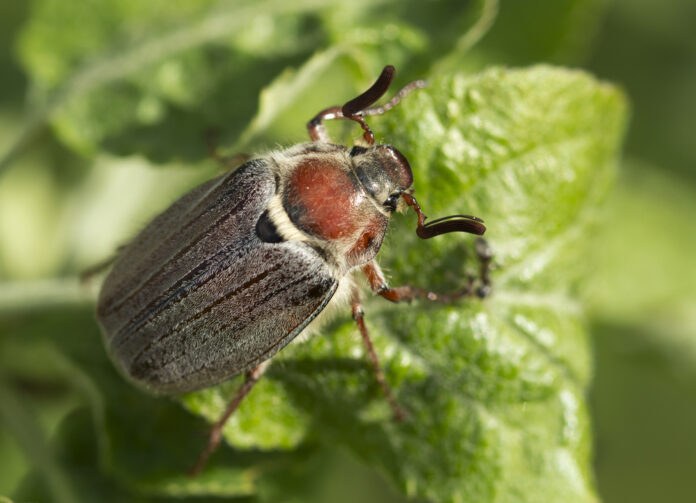Brits are being warned to look out for an invasion of Cockchafers in their gardens this May.
The green-thumbed experts at GardeningExpress.co.uk have revealed what to look out for when it comes to the critters and how to prevent them from ruining the garden
These hairy pests, nicknamed the Maybug, are known to be a nuisance around the garden.
Luckily, the six-legged bugs do not bite humans but adult Cockchafers have a tendency to chew on leaves and flowers.
Their larvae, known as Grubs, cause the most damage and tend to feed on grass roots which can result in patches and a tainted yellow colouring.
Chris Bonnett, founder of GardeningExpress.co.uk, said: “If you’ve sat in the garden on a warm summer evening and suddenly hear a loud, aggressive buzzing noise, it’s likely to be an adult Cockchafer.
“The May Bug are usually harmless to humans but they can be detrimental to gardens.
“The adult bugs will seek plants and flowers but are unlikely to cause too much damage, Grubs however live in the soil and will be feeding on grass roots which can be detrimental.
“We’ve put together a summary of what the bugs are and how to prevent them from ruining a garden before it’s too late.”
Here’s everything you need to know about Cockchafers:
What do they look like:
Adult Cockchafers can be identified by their large brown-coloured, slightly hairy bodies with wings on their back and long antennas on the front.
The six-legged critters also make a loud buzzing sound which is slightly more noisy than bees.
Grubs are only a few millimetres long and have a plump, creamy white c-shaped body and can be found in the soil.
What are they attracted to:
Adult Cockchafers are attracted to plants and flowers as that’s what they tend to feed on.
The adult pests are also attracted to light which is why they’re often found swarming around in the warm evenings.
The bugs don’t bite but they can quickly become a nuisance due to their loud buzzing.
Grubs are attracted to warm and moist soil as it’s easier for them to move around in. They also love organic mulch as feeding off of this helps them thrive.
The dangers of keeping them in the garden:
If they’re left to fester in the garden, Cockchafers can cause severe damage to plants, flowers and grass to the point where the space is untreatable.
Grubs will also ruin the grass by feeding on its roots, leaving patches and discolouring.
How to get rid of them:
Adult Cockchafers can be warded off by spraying lavender-scented products around plants and flowers. Make sure to also keep windows shut at night to prevent them from coming inside as they’re attracted to light.
Grubs can be brought to the surface by watering the garden at night and covering the damp area with a blanket or sack. By the morning they’ll appear on top of the soil.
Help keep news FREE for our readers
Supporting your local community newspaper/online news outlet is crucial now more than ever. If you believe in independent journalism, then consider making a valuable contribution by making a one-time or monthly donation. We operate in rural areas where providing unbiased news can be challenging. Read More About Supporting The West Wales Chronicle


























